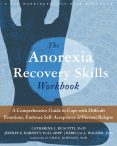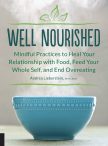Anorexia nervosa, often referred to simply as anorexia, is an eating disorder, characterized by low weight, food restriction, fear of gaining weight, and a strong desire to be thin. Many people with anorexia see themselves as overweight even though they are, in fact, underweight.
Myths and Misperceptions about Eating Disorders | Retro Report
Eating and Body Dysmorphic Disorders: Crash Course Psychology #33
Anorexia Nervosa, Causes, Signs and Symptoms, Diagnosis and Treatment.
Diabulimia: The World's Most Dangerous Eating Disorder
Anorexia: A Boy in a Girl's World | BBC Newsbeat
6 Types of Eating Disorders
Empty - Eating Disorder Film
After anorexia: Life's too short to weigh your cornflakes | Catherine Pawley | TEDxLeamingtonSpa
Understanding anorexia
Anorexia nervosa - causes, symptoms, diagnosis, treatment & pathology
National Eating Disorder Information Centre (NEDIC)
Simcoe County Eating Disorders Service
EHN Canada Eating Disorder Program
Anorexics and Bulimics Anonymous (ABA)
Sogge and Associates Private practice Registered with College of Psychologists of Ontario
Abbotsford Mental Health Centre
Kelowna Eating Disorders Program
Provincial Specialized Adult Tertiary Eating Disorders Program
Victoria General Hospital
Prince George Eating Disorders Clinic
St. Joseph`s Hospital-Adolescent Outpatient Services
Eating Disorders Program in South Vancouver Island Region
Fraser South Eating Disorders Program
Eating and Body Dysmorphic Disorders: Crash Course Psychology #33
Anorexia Nervosa, Causes, Signs and Symptoms, Diagnosis and Treatment.
Diabulimia: The World's Most Dangerous Eating Disorder
Anorexia: A Boy in a Girl's World | BBC Newsbeat
6 Types of Eating Disorders
Empty - Eating Disorder Film
After anorexia: Life's too short to weigh your cornflakes | Catherine Pawley | TEDxLeamingtonSpa
Understanding anorexia
Anorexia nervosa - causes, symptoms, diagnosis, treatment & pathology
National Eating Disorder Information Centre (NEDIC)
Simcoe County Eating Disorders Service
EHN Canada Eating Disorder Program
Anorexics and Bulimics Anonymous (ABA)
Sogge and Associates Private practice Registered with College of Psychologists of Ontario
Abbotsford Mental Health Centre
Kelowna Eating Disorders Program
Provincial Specialized Adult Tertiary Eating Disorders Program
Victoria General Hospital
Prince George Eating Disorders Clinic
St. Joseph`s Hospital-Adolescent Outpatient Services
Eating Disorders Program in South Vancouver Island Region
Fraser South Eating Disorders Program
 100 questions & answers about anorexia nervosaThis book offers a complete guide to understanding the causes of anorexia, warning signs and diagnosis, and practical suggestions on how to help loved ones suffering from anorexia as well as the treatment options available. Written by a clinical psychologist with nearly 20 years experience in the field of eating disorders, along with contributions from actual patients
100 questions & answers about anorexia nervosaThis book offers a complete guide to understanding the causes of anorexia, warning signs and diagnosis, and practical suggestions on how to help loved ones suffering from anorexia as well as the treatment options available. Written by a clinical psychologist with nearly 20 years experience in the field of eating disorders, along with contributions from actual patients A short introduction to understanding and supporting children with eating disordersThis guide presents all the vital information on a range of eating disorders: anorexia nervosa, bulimia nervosa, selective eating, and avoidant and restrictive intake disorders. Each eating disorder is clearly defined, making it easy to draw distinctions between them. The book covers their origins, characteristics and typical development, letting teachers and parents know what signs to look out for. There is practical advice on how to help young people, strategies for overcoming common difficulties, as well as information on available treatments. Vignettes feature throughout to help teachers and parents apply knowledge to real-life situations.
A short introduction to understanding and supporting children with eating disordersThis guide presents all the vital information on a range of eating disorders: anorexia nervosa, bulimia nervosa, selective eating, and avoidant and restrictive intake disorders. Each eating disorder is clearly defined, making it easy to draw distinctions between them. The book covers their origins, characteristics and typical development, letting teachers and parents know what signs to look out for. There is practical advice on how to help young people, strategies for overcoming common difficulties, as well as information on available treatments. Vignettes feature throughout to help teachers and parents apply knowledge to real-life situations. Anorexia and other eating disorders: how to help your child eat well and be welln this book, Eva Musby draws on her family’s successful use of evidence-based treatment to empower you to support your child through recovery.
Anorexia and other eating disorders: how to help your child eat well and be welln this book, Eva Musby draws on her family’s successful use of evidence-based treatment to empower you to support your child through recovery. Decoding anorexia: how breakthroughs in science offer hope for eating disordersAuthor Carrie Arnold, a trained scientist, science writer, and past sufferer of anorexia, speaks about the factors that make one vulnerable to anorexia, the neurochemistry behind the call of starvation, and why it’s so hard to leave anorexia behind
Decoding anorexia: how breakthroughs in science offer hope for eating disordersAuthor Carrie Arnold, a trained scientist, science writer, and past sufferer of anorexia, speaks about the factors that make one vulnerable to anorexia, the neurochemistry behind the call of starvation, and why it’s so hard to leave anorexia behind Getting better bite by bite: a survival kit for sufferers of bulimia nervosa and binge eating disordersThis handy-sized book fills a need for easy-to-understand information about Bulimia Nervosa, a serious and prevalent eating disorder.
Getting better bite by bite: a survival kit for sufferers of bulimia nervosa and binge eating disordersThis handy-sized book fills a need for easy-to-understand information about Bulimia Nervosa, a serious and prevalent eating disorder. Give food a chance: a new view on childhood eating disordersJulie O’Toole presents compelling evidence that childhood eating disorders have a neurological rather than a psychosocial basis, and explains what this means for treatment. She describes clearly what patients and families can expect from treatment, signs and symptoms indicating the need for hospitalization, and advice on how to recognise a relapse.
Give food a chance: a new view on childhood eating disordersJulie O’Toole presents compelling evidence that childhood eating disorders have a neurological rather than a psychosocial basis, and explains what this means for treatment. She describes clearly what patients and families can expect from treatment, signs and symptoms indicating the need for hospitalization, and advice on how to recognise a relapse. Help your teenager beat an eating disorderJames Lock and Daniel Le Grange present strong evidence that parents – who have often been told to take a back seat in eating disorder treatment – can and must play a key role in recovery. Whether pursuing family based treatment or other options, parents learn specific, doable steps for monitoring their teen’s eating and exercise habits, managing mealtimes, ending weight-related power struggles, and collaborating successfully with health care providers. Featuring the latest research and resources, the second edition now addresses additional disorders recognized in DSM 5 (including binge eating disorder).
Help your teenager beat an eating disorderJames Lock and Daniel Le Grange present strong evidence that parents – who have often been told to take a back seat in eating disorder treatment – can and must play a key role in recovery. Whether pursuing family based treatment or other options, parents learn specific, doable steps for monitoring their teen’s eating and exercise habits, managing mealtimes, ending weight-related power struggles, and collaborating successfully with health care providers. Featuring the latest research and resources, the second edition now addresses additional disorders recognized in DSM 5 (including binge eating disorder). Orthorexia: when healthy eating goes badOrthorexia is an unhealthy obsession with eating only healthy food. It is closely related to anorexia, but focused on quality of food rather than quantity. But how do you know if you or a friend or loved one has crossed that line? And how much do you really know about the impact these diets, plans and detoxes are having on your body? This book helps you to recognise potential issues, break free from the condition and find a way back to a balanced, truly healthy way of eating and enjoying life.
Orthorexia: when healthy eating goes badOrthorexia is an unhealthy obsession with eating only healthy food. It is closely related to anorexia, but focused on quality of food rather than quantity. But how do you know if you or a friend or loved one has crossed that line? And how much do you really know about the impact these diets, plans and detoxes are having on your body? This book helps you to recognise potential issues, break free from the condition and find a way back to a balanced, truly healthy way of eating and enjoying life. The anorexia recovery skills workbook: a comprehensive guide to cope with difficult emotions, embrace self-acceptance and prevent relapseIf you have anorexia, it can be difficult to see yourself clearly, even after treatment. That’s why it’s so important for you to have resources available to prevent relapse. Written by three psychologists and experts in eating disorders, this important guide provides evidence-based skills blending acceptance and commitment therapy (ACT), cognitive behavioral therapy (CBT), and dialectical behavior therapy (DBT) to help you recover--and stay on the path to recovery.
The anorexia recovery skills workbook: a comprehensive guide to cope with difficult emotions, embrace self-acceptance and prevent relapseIf you have anorexia, it can be difficult to see yourself clearly, even after treatment. That’s why it’s so important for you to have resources available to prevent relapse. Written by three psychologists and experts in eating disorders, this important guide provides evidence-based skills blending acceptance and commitment therapy (ACT), cognitive behavioral therapy (CBT), and dialectical behavior therapy (DBT) to help you recover--and stay on the path to recovery. Well nourished: mindful practices to heal your relationship with food, feed your whole self, and end overeatingThere is much more to nourishing yourself than simply eating food. After a long day of feeling run down and exhausted, what you’re really hungering for are other forms of nourishment. Well Nourished is here to show you how to live a life where feel nourished emotionally, intellectually, physically, socially, and creatively.
Well nourished: mindful practices to heal your relationship with food, feed your whole self, and end overeatingThere is much more to nourishing yourself than simply eating food. After a long day of feeling run down and exhausted, what you’re really hungering for are other forms of nourishment. Well Nourished is here to show you how to live a life where feel nourished emotionally, intellectually, physically, socially, and creatively. When your teen has an eating disorderIf you have a teen with an eating disorder, such as anorexia, bulimia or binge eating, you may feel powerless, worried or uncertain about how you can best support them on the road to recovery. Grounded in evidence-based strategies, this book will help give you the confidence you need to help your teen make healthy choices and heal in body and mind.
When your teen has an eating disorderIf you have a teen with an eating disorder, such as anorexia, bulimia or binge eating, you may feel powerless, worried or uncertain about how you can best support them on the road to recovery. Grounded in evidence-based strategies, this book will help give you the confidence you need to help your teen make healthy choices and heal in body and mind. 6 Types of Eating Disorders
After anorexia: Life's too short to weigh your cornflakes | Catherine Pawley | TEDxLeamingtonSpa
Anorexia nervosa - causes, symptoms, diagnosis, treatment & pathology
Anorexia Nervosa, Causes, Signs and Symptoms, Diagnosis and Treatment.
Anorexia: A Boy in a Girl's World | BBC Newsbeat
Diabulimia: The World's Most Dangerous Eating Disorder
Eating and Body Dysmorphic Disorders: Crash Course Psychology #33
Empty - Eating Disorder Film
Myths and Misperceptions about Eating Disorders | Retro Report
Understanding anorexia
https://nedic.ca/
https://www.eatingdisorderhope.com/
https://www.camh.ca/en/health-info/mental-illness-and-addiction-index/eating-disorders
https://www.cheo.on.ca/en/resources-and-support/eating-disorders.aspx
https://www.nationaleatingdisorders.org/
https://www.nimh.nih.gov/health/topics/eating-disorders/index.shtml
https://amiquebec.org/eating-disorders/
